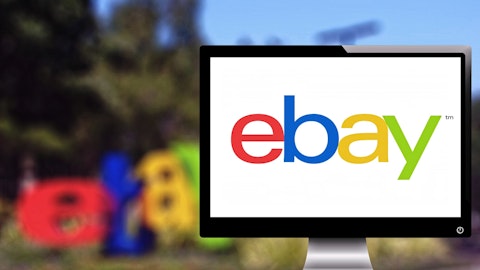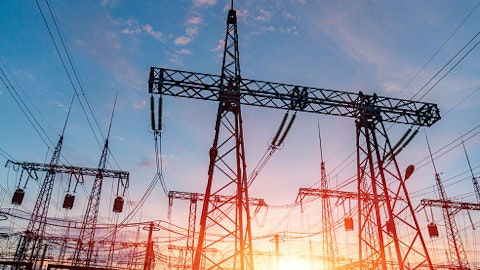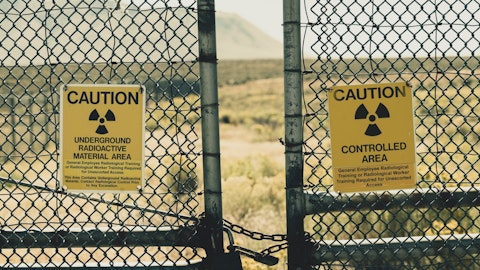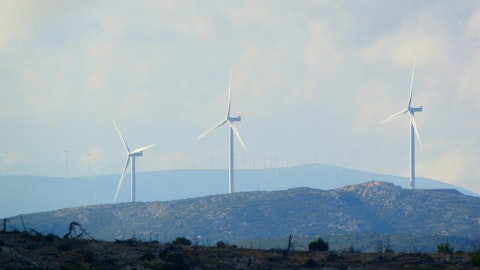The other aspect I’ll mention is, as I talked about in my prepared remarks, ComEd elected to defer some of the rate increase in 2024 to 2026. So again, looking on it over that time period is important because without it, you’re missing some of the cash timing. And that’s why we look at it on that average basis.
Nick Campanella: Thanks a lot for that. And then, I guess just, it’s nice to see that you bumped the CapEx program higher, and you’re not changing your kind of total equity needs in a five-year window here. Just of that remaining 4.25% equity, you guys did a block for the first piece. Just is it your intention to kind of dribble out the remaining here via an ATM or otherwise, any comments on that?
Jeanne Jones: Yes, we want to retain the flexibility just given varying market conditions, but we do still have our $1 ATM, so we can leverage that as needed to dribble it in as you suggest.
Nick Campanella: Really appreciate it. Thank you.
Calvin Butler: Thank you, Nick.
Operator: Thank you. Our next question comes from the line of Steven Fleishman from Wolfe Research.
Steven Fleishman: Yes, good morning. Thanks for all the
Calvin Butler: Good morning.
Steven Fleishman: Good morning, Calvin. Jeanne, thanks for all the clarifications on guidance’s. Don’t have to ask all sorts of midpoint or median or other type questions this time.
Calvin Butler: Had to go back.
Steven Fleishman: So just on Slide 16, I guess the one thing that’s interesting is just for PECO, in the 2023 kind of second year of a rate year, it was a €“ it’s a down versus 2022, but in 2026 second year it’s kind of more flattish or yellow arrow. Is that just that PECO had this return to normal weather and storms and other stuff that is an issue 2023 versus 2022, and that’s pretty much it, but like otherwise would be kind of the normal course.
Calvin Butler: Yes, you’re right on point, Steve. That’s exactly the reasoning for.
Steven Fleishman: Okay. Okay. And then just on the topic of the €“ on Illinois, could you give us maybe some sense of when we’re going to get information on the process, on the recommendations and other stuff on the multiply year kind of timing?
Calvin Butler: Yes, and I do have with me Gil Quiniones, CEO of ComEd to really walk you through that process. So I’m going to turn to Gil to kind of walk you through the timing of how things are going to unfold. Gil?
Gil Quiniones: Hi, Steve. So there is a tentative schedule set. And in May, we expect the testimony of the interveners to be submitted in August, evidentiary hearings will commence. And again, the €“ after that all the way to the required schedule is for the ICCR regulators to make their final determination before December 20 of this year.
Steven Fleishman: Okay.
Calvin Butler: So that capital calendar, Steve, any additional questions on that?
Steven Fleishman: Well, just, is there, because this is first time, is it likely that this would go through a fully litigated process or should we think there might be opportunities to settle these cases?
Calvin Butler: No, I would anticipate on this. This would be fully litigated Steve, because, as we talked about, as I talked about in my comments, it’s been a very engaged stakeholder process. And if I was the commission in this, I would make sure that we have a form for everyone to be heard and we wouldn’t rush to the final outcome because this will put Illinois on a path to decarbonize like no other state except for maybe California. And it’s in a very aggressive on approach and the legislation is comprehensive and ComEd being the largest utility in the state. I think they need to make sure that all voices are heard and the stakeholders are engaged throughout.





